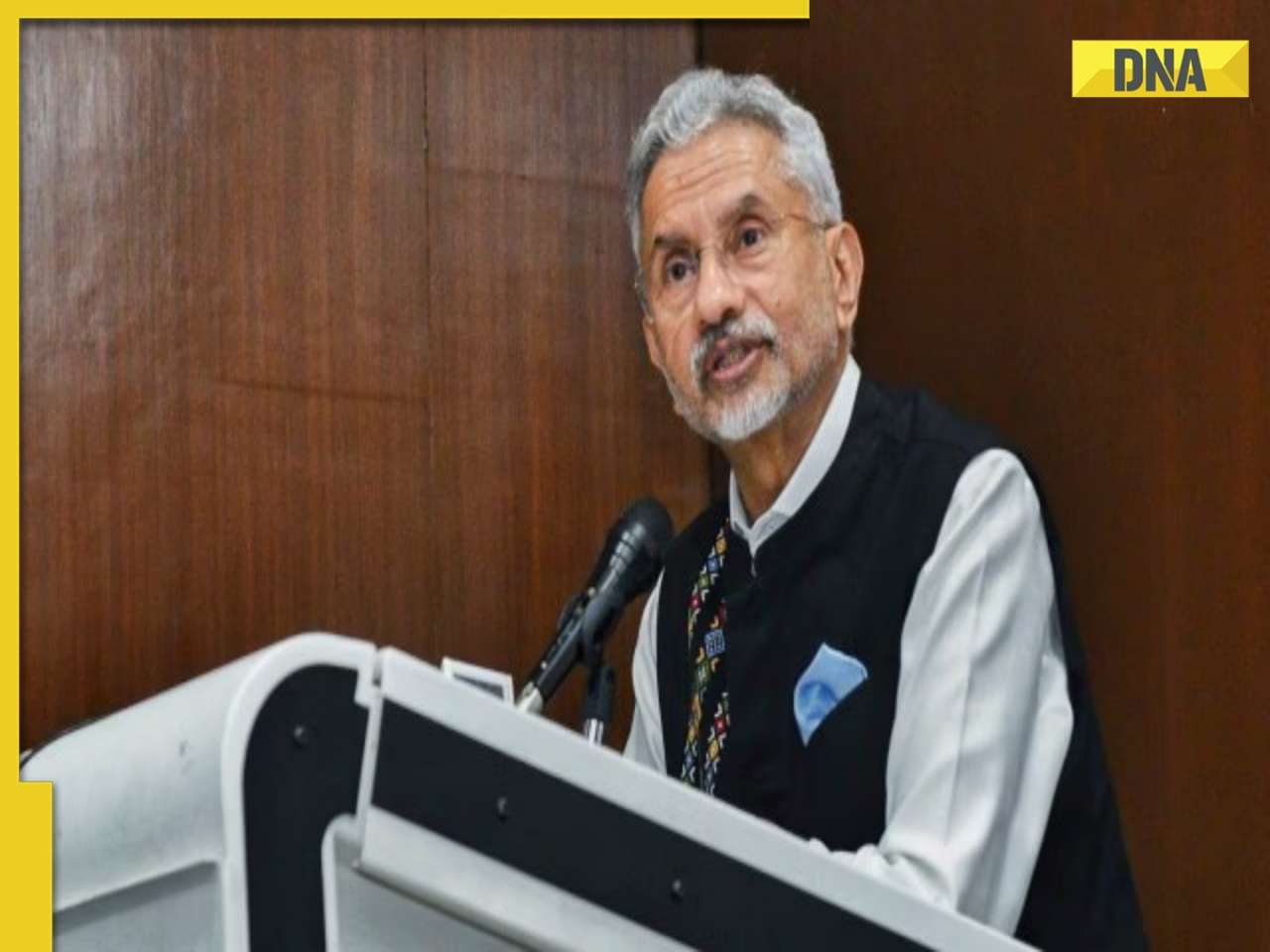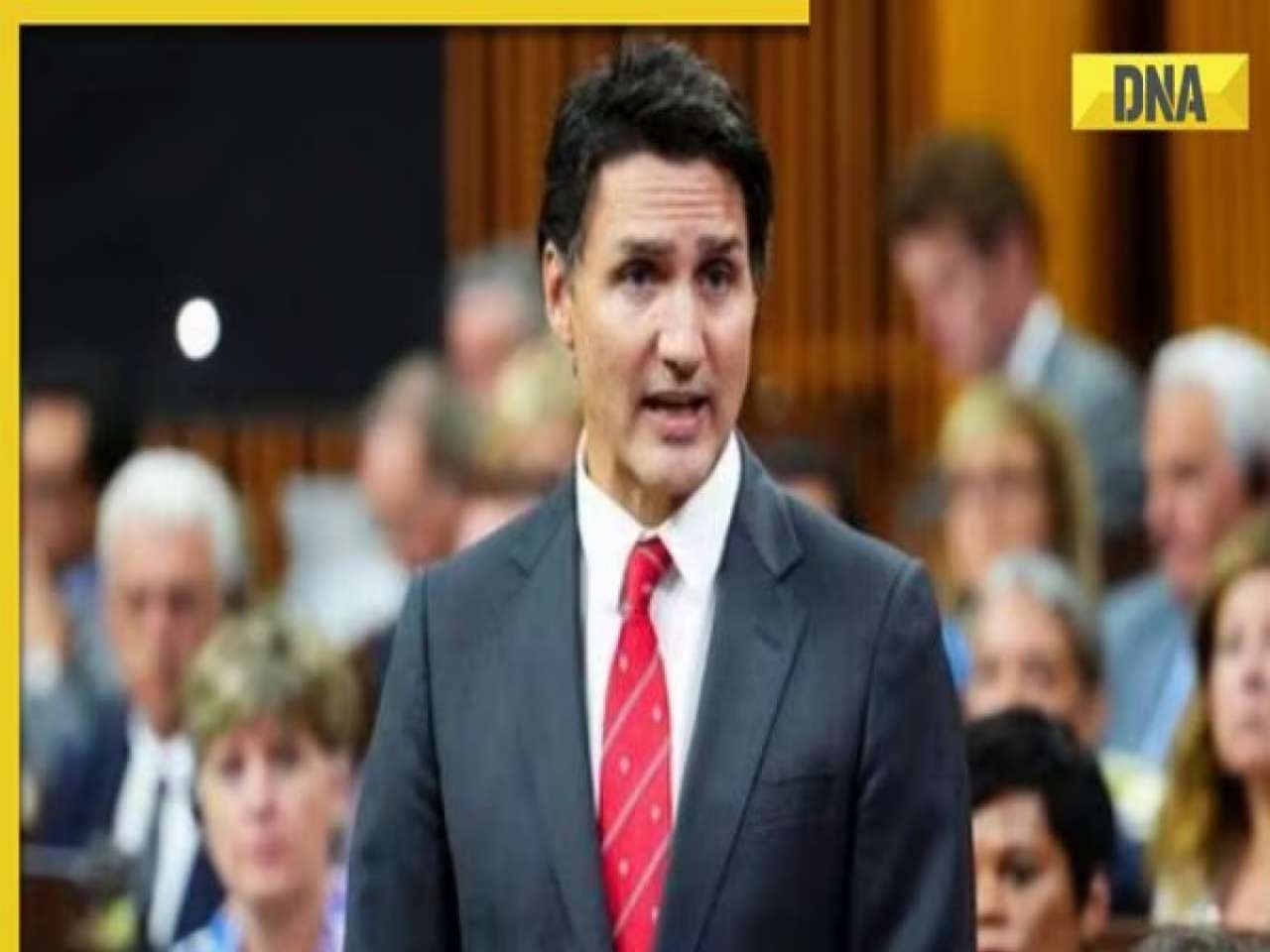Clinton's blue-and-white official plane touched down at the airport in Naypyitaw, the remote new capital of the country formerly known as Burma.
Hillary Clinton became the first US secretary of state to visit Myanmar in more than 50 years on Wednesday, launching an historic mission to press the reclusive country's new leaders to sever illicit contacts with North Korea and deliver on reforms.
Clinton's blue-and-white official plane touched down at the airport in Naypyitaw, the remote new capital of the country formerly known as Burma, starting a three-day visit which will see her meet the new military-backed civilian leadership and hold discussions with pro-democracy leader Aung San Suu Kyi.
Clinton is the first US secretary of state to visit Myanmar since John Foster Dulles in 1955, and her visit caps a period of rapid and remarkable transformation in the Southeast Asian country, a virtual international pariah since the military seized power in a coup in 1962 starting decades of brutal authoritarian rule.
The visit, announced by President Barack Obama at a regional summit in earlier this month, could also open a new arena of US competition with China, which has watched warily as Washington courts its resource-rich southern neighbour as part of a broader policy of increasing US engagement in Asia.
Clinton will meet President Thein Sein and other senior officials in Naypyitaw on Thursday, giving her the chance to personally assess their commitment to a reform process that is gaining momentum following elections last November which saw the military nominally hand over power to civilian officials.
There was a low-key welcome at the airport with just a handful of Mynamar officials to greet Clinton, and no obvious signs of preparations for the visit in newly built Naypyitaw, apart from some policemen outside the hotel where she will stay.
A senior US State Department official said Clinton would urge Myanmar's new leaders -- many of them until recently top generals -- to break off secret military deals with North Korea, another isolated state whose rogue nuclear programme has spurred fears across East Asia and drawn international sanctions.
"Our discussions will be around seeking much stronger assurances ... of a determination on the part of the government to discontinue activities that we believe are antithetical to the maintenance of peace and stability," the official told reporters aboard Clinton's plane.
US officials say they believe Myanmar has sought missile technology from North Korea, but played down concerns that this cooperation had broadened to include a nascent nuclear programme.
"To date our primary area of focus is the missiles," the official said. "We've looked at this fairly carefully and we do not see signs of a substantial nuclear effort at this time."
Disrupting Myanmar's tentative alignment with North Korea would be a major diplomatic bonus for the United States, but US officials said Clinton would also keep up pressure for more reforms at home by offering reciprocal US gestures if democratic changes deepened.
US officials have said Myanmar -- long seen as a major human rights violator -- needs to release all political prisoners and make progress in ending bloody conflicts with ethnic minority groups before Washington can consider lifting crippling economic sanctions imposed two decades ago.
"The secretary comes with a series of very specific steps that we'd like to see in terms of the next phase of the process that is under way," the US official said.
"We expect this to be a very thorough review of not only the steps that they have taken, and what we expect to see in the future, but the things that the United States is prepared to do in response."
Potential symbolic moves such as easing travel restrictions on top Myanmar officials or returning a full US ambassador to the country after years of a more junior-level representation could bolster reformers in the government, who are still thought to face some opposition from entrenched military interests.
But Clinton herself has played down the prospect for any rapid easing of sanctions, most of which would require action by Congress where some lawmakers remain skeptical of the reform effort.
"Secretary Clinton's visit represents a monumental overture to an outlaw regime whose DNA remains fundamentally brutal," Republican Congresswoman Ileana Ros-Lehtinen, the powerful head of the House of Representatives Foreign Affairs Committee, said in a statement. "The enforcement of tough sanctions ... is needed to bring about the needed political change in Burma."
Clinton will travel to the main commercial city of Yangon on Thursday and make an offering at the city's imposing Shwedagon Pagoda, whose golden spire has long been a revered symbol of Myanmar's nationhood.
She will also hold two meetings with Suu Kyi, the Nobel peace laureate and democracy advocate who spent 15 of the last 21 years in detention before being released last November. It will be Clinton's first chance to personally compare notes with the pro-democracy heroine, who often draws comparisons with South Africa's Nelson Mandela.
At a private dinner on Thursday, and again at a formal meeting at Suu Kyi's home on Friday, the two are expected to discuss Suu Kyi's plans to stand in coming by-elections, which would bring her into the formal political process.
Clinton will also meet civil society activists and representatives of ethnic minorities. Conflict between minority guerrillas and the military in border areas may be among the most difficult of Myanmar's political problems to resolve.
The senior State Department official said Clinton planned to be in "listening mode" throughout her visit, which he described as the first step on a potentially long road toward full normalisation of ties.
In Beijing, Chinese Foreign Ministry spokesperson Hong Lei said his government welcomed warmer ties between Myanmar and Western countries.
Asked whether Myanmar's process of opening would undermine China's interests, Hong told a briefing: "We believe that Myanmar and the concerned Western country should strengthen contacts and improve relations on the basis of mutual respect, and we hope that steps like this will help Myanmar's stability and development."
![submenu-img]() 'They unilaterally took some measures': EAM Jaishankar on new Nepal 100 rupee currency
'They unilaterally took some measures': EAM Jaishankar on new Nepal 100 rupee currency![submenu-img]() Meet Ice Cream Lady of India, who built Rs 6000 crore company, started with small investment of Rs…
Meet Ice Cream Lady of India, who built Rs 6000 crore company, started with small investment of Rs…![submenu-img]() ‘Canada a rule-of-law country’: PM Trudeau after 3 Indian arrested over Hardeep Nijjar's murder
‘Canada a rule-of-law country’: PM Trudeau after 3 Indian arrested over Hardeep Nijjar's murder![submenu-img]() Viral video: Specially-abled girl’s energetic dance to Bollywood song wows internet, watch
Viral video: Specially-abled girl’s energetic dance to Bollywood song wows internet, watch![submenu-img]() 'Baap re baap': Imtiaz Ali reveals Diljit Dosanjh was scandalised by old women's 'vulgar' improvisation on Chamkila set
'Baap re baap': Imtiaz Ali reveals Diljit Dosanjh was scandalised by old women's 'vulgar' improvisation on Chamkila set![submenu-img]() DNA Verified: Is CAA an anti-Muslim law? Centre terms news report as 'misleading'
DNA Verified: Is CAA an anti-Muslim law? Centre terms news report as 'misleading'![submenu-img]() DNA Verified: Lok Sabha Elections 2024 to be held on April 19? Know truth behind viral message
DNA Verified: Lok Sabha Elections 2024 to be held on April 19? Know truth behind viral message![submenu-img]() DNA Verified: Modi govt giving students free laptops under 'One Student One Laptop' scheme? Know truth here
DNA Verified: Modi govt giving students free laptops under 'One Student One Laptop' scheme? Know truth here![submenu-img]() DNA Verified: Shah Rukh Khan denies reports of his role in release of India's naval officers from Qatar
DNA Verified: Shah Rukh Khan denies reports of his role in release of India's naval officers from Qatar![submenu-img]() DNA Verified: Is govt providing Rs 1.6 lakh benefit to girls under PM Ladli Laxmi Yojana? Know truth
DNA Verified: Is govt providing Rs 1.6 lakh benefit to girls under PM Ladli Laxmi Yojana? Know truth![submenu-img]() Streaming This Week: Heeramandi, Shaitaan, Manjummel Boys, latest OTT releases to binge-watch
Streaming This Week: Heeramandi, Shaitaan, Manjummel Boys, latest OTT releases to binge-watch![submenu-img]() Remember Ayesha Kapur? Michelle from Black, here's how actress, nutrition coach, entrepreneur looks after 19 years
Remember Ayesha Kapur? Michelle from Black, here's how actress, nutrition coach, entrepreneur looks after 19 years![submenu-img]() Remember Heyy Babyy's cute 'Angel' Juanna Sanghvi? 20 year-old looks unrecognisable now, fans say 'her comeback will...'
Remember Heyy Babyy's cute 'Angel' Juanna Sanghvi? 20 year-old looks unrecognisable now, fans say 'her comeback will...'![submenu-img]() In pics: Arti Singh stuns in red lehenga as she ties the knot with beau Dipak Chauhan in dreamy wedding
In pics: Arti Singh stuns in red lehenga as she ties the knot with beau Dipak Chauhan in dreamy wedding![submenu-img]() Actors who died due to cosmetic surgeries
Actors who died due to cosmetic surgeries![submenu-img]() DNA Explainer: Why Harvey Weinstein's rape conviction was overturned, will beleaguered Hollywood mogul get out of jail?
DNA Explainer: Why Harvey Weinstein's rape conviction was overturned, will beleaguered Hollywood mogul get out of jail?![submenu-img]() What is inheritance tax?
What is inheritance tax?![submenu-img]() DNA Explainer: What is cloud seeding which is blamed for wreaking havoc in Dubai?
DNA Explainer: What is cloud seeding which is blamed for wreaking havoc in Dubai?![submenu-img]() DNA Explainer: What is Israel's Arrow-3 defence system used to intercept Iran's missile attack?
DNA Explainer: What is Israel's Arrow-3 defence system used to intercept Iran's missile attack?![submenu-img]() DNA Explainer: How Iranian projectiles failed to breach iron-clad Israeli air defence
DNA Explainer: How Iranian projectiles failed to breach iron-clad Israeli air defence![submenu-img]() 'Baap re baap': Imtiaz Ali reveals Diljit Dosanjh was scandalised by old women's 'vulgar' improvisation on Chamkila set
'Baap re baap': Imtiaz Ali reveals Diljit Dosanjh was scandalised by old women's 'vulgar' improvisation on Chamkila set![submenu-img]() This actor, who worked with Karan Johar and Farhan Akhtar, gave superhit shows, saw failed marriage, killed himself at..
This actor, who worked with Karan Johar and Farhan Akhtar, gave superhit shows, saw failed marriage, killed himself at..![submenu-img]() Did you know Ranveer Singh's grandmother was popular actress? Worked with Raj Kapoor; her career affected due to...
Did you know Ranveer Singh's grandmother was popular actress? Worked with Raj Kapoor; her career affected due to...![submenu-img]() India's highest-paid TV actress began working at 8, her Bollywood films flopped, was seen in Bigg Boss 1, now charges...
India's highest-paid TV actress began working at 8, her Bollywood films flopped, was seen in Bigg Boss 1, now charges...![submenu-img]() Shreyas Talpade wonders if his heart attack was due to Covid vaccine: 'We don’t know what we have taken inside...'
Shreyas Talpade wonders if his heart attack was due to Covid vaccine: 'We don’t know what we have taken inside...'![submenu-img]() IPL 2024: Faf du Plessis, Virat Kohli help Royal Challengers Bengaluru defeat Gujarat Titans by 4 wickets
IPL 2024: Faf du Plessis, Virat Kohli help Royal Challengers Bengaluru defeat Gujarat Titans by 4 wickets![submenu-img]() IPL 2024: Why is Sai Kishore not playing today's RCB vs GT match?
IPL 2024: Why is Sai Kishore not playing today's RCB vs GT match?![submenu-img]() 'Mumbai Indians ki kahani khatam': Ex-India star slams Hardik Pandya after MI's loss to KKR at Wankhede
'Mumbai Indians ki kahani khatam': Ex-India star slams Hardik Pandya after MI's loss to KKR at Wankhede![submenu-img]() LSG vs KKR, IPL 2024: Predicted playing XI, live streaming details, weather and pitch report
LSG vs KKR, IPL 2024: Predicted playing XI, live streaming details, weather and pitch report![submenu-img]() LSG vs KKR IPL 2024 Dream11 prediction: Fantasy cricket tips for Lucknow Super Giants vs Kolkata Knight Riders
LSG vs KKR IPL 2024 Dream11 prediction: Fantasy cricket tips for Lucknow Super Giants vs Kolkata Knight Riders![submenu-img]() Viral video: Specially-abled girl’s energetic dance to Bollywood song wows internet, watch
Viral video: Specially-abled girl’s energetic dance to Bollywood song wows internet, watch![submenu-img]() Viral video: Man educates younger brother about mensuration, internet is highly impressed
Viral video: Man educates younger brother about mensuration, internet is highly impressed![submenu-img]() Girl's wedding dance to Haryanvi song interrupted by mother in viral video, internet reacts
Girl's wedding dance to Haryanvi song interrupted by mother in viral video, internet reacts![submenu-img]() Viral video: Man fearlessly grabs dozens of snakes, internet is scared
Viral video: Man fearlessly grabs dozens of snakes, internet is scared![submenu-img]() This mysterious mobile phone number was suspended after three users...
This mysterious mobile phone number was suspended after three users...

















































)
)
)
)
)
)